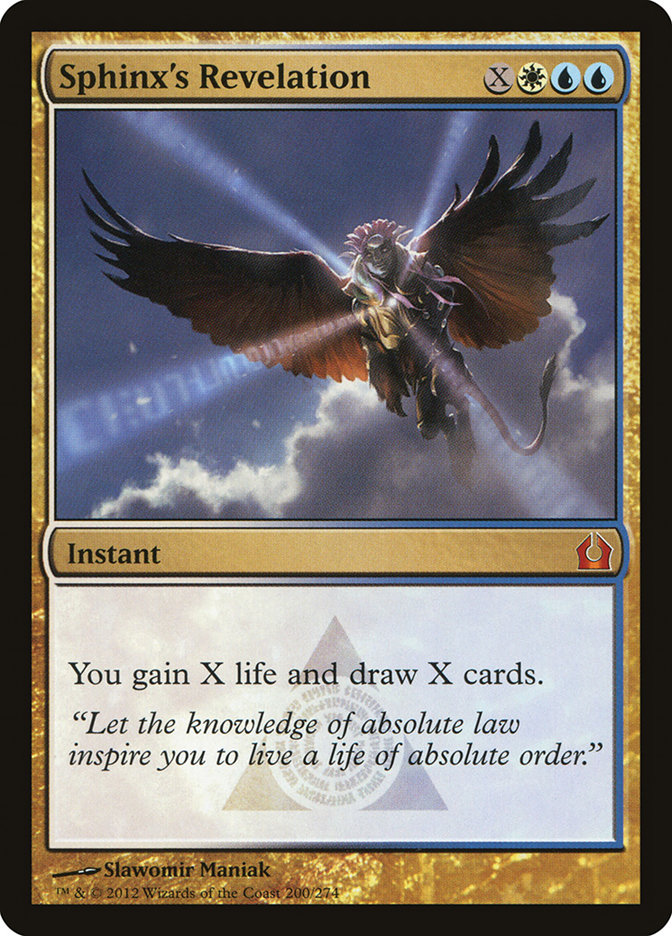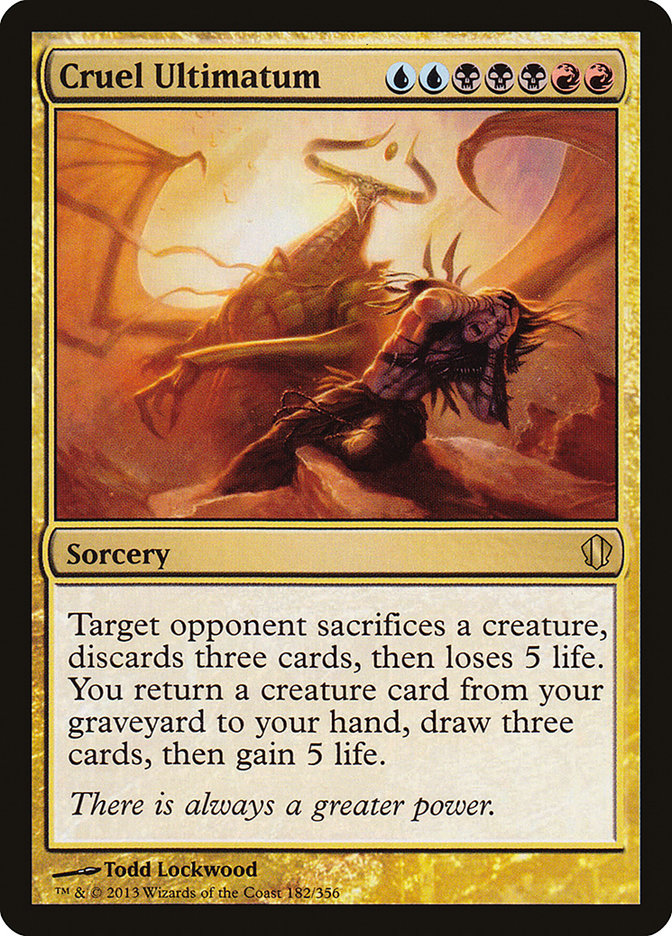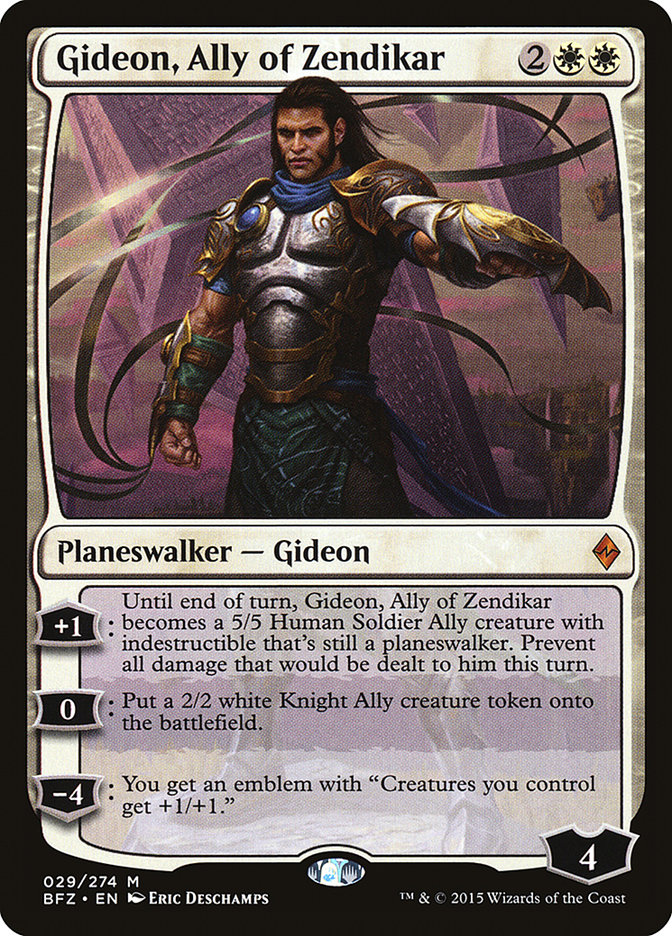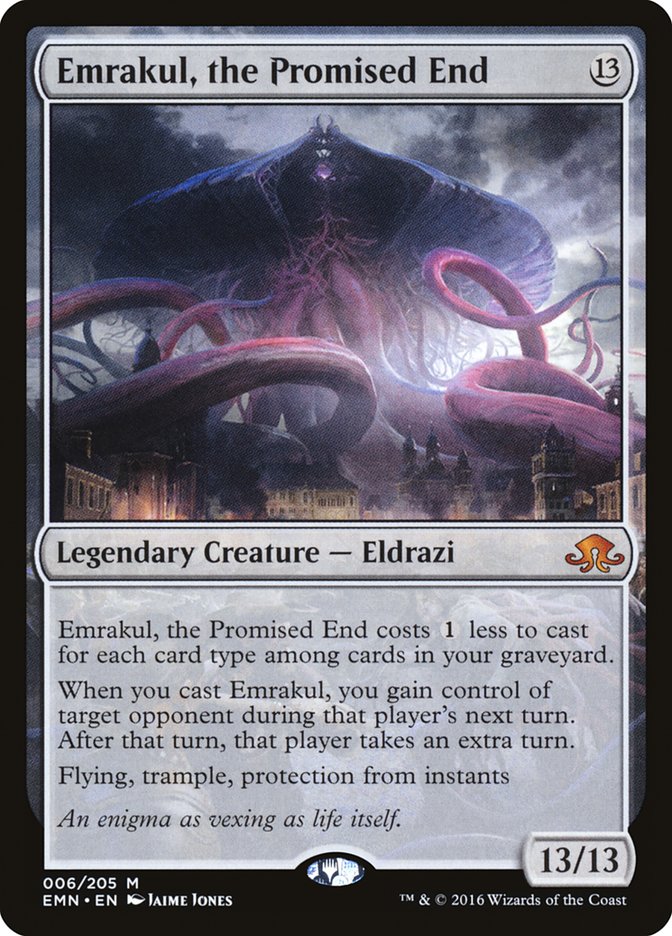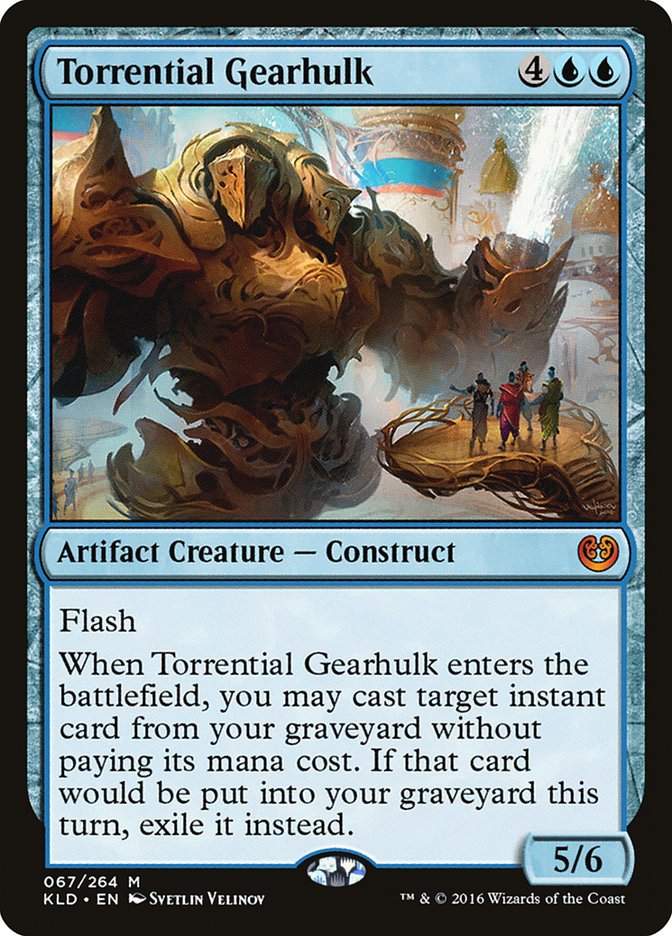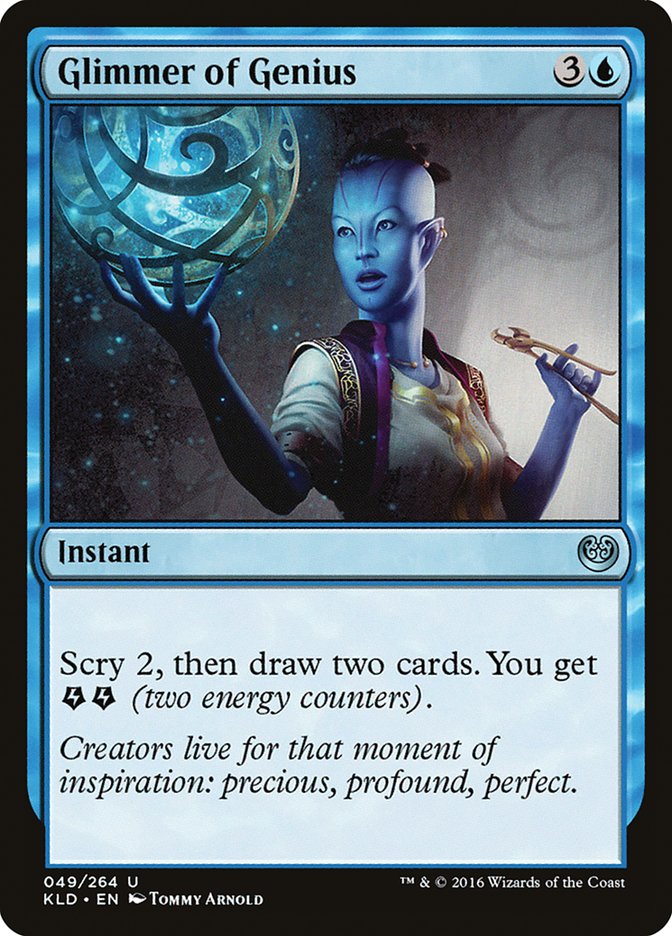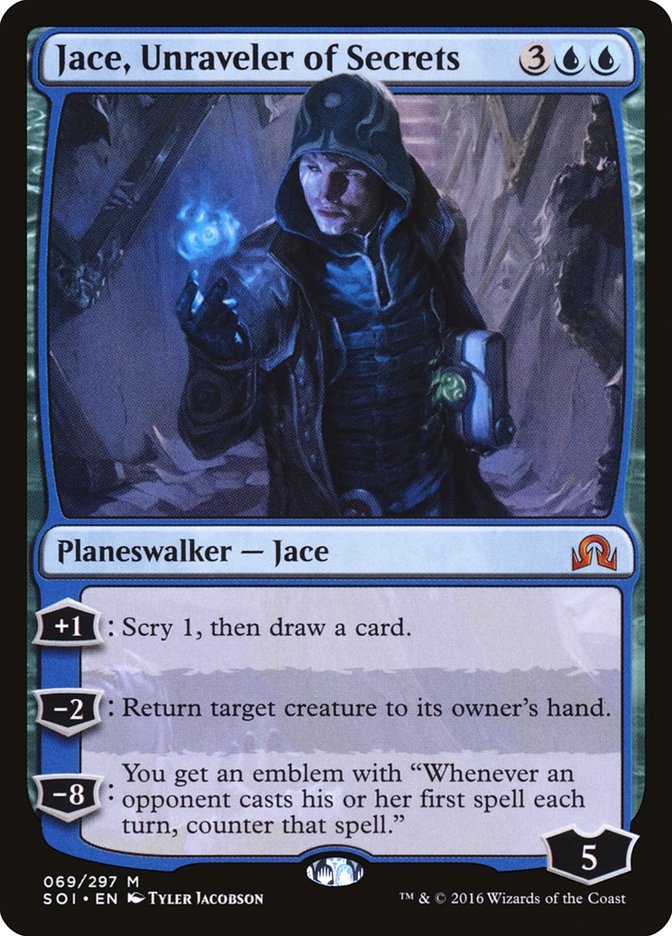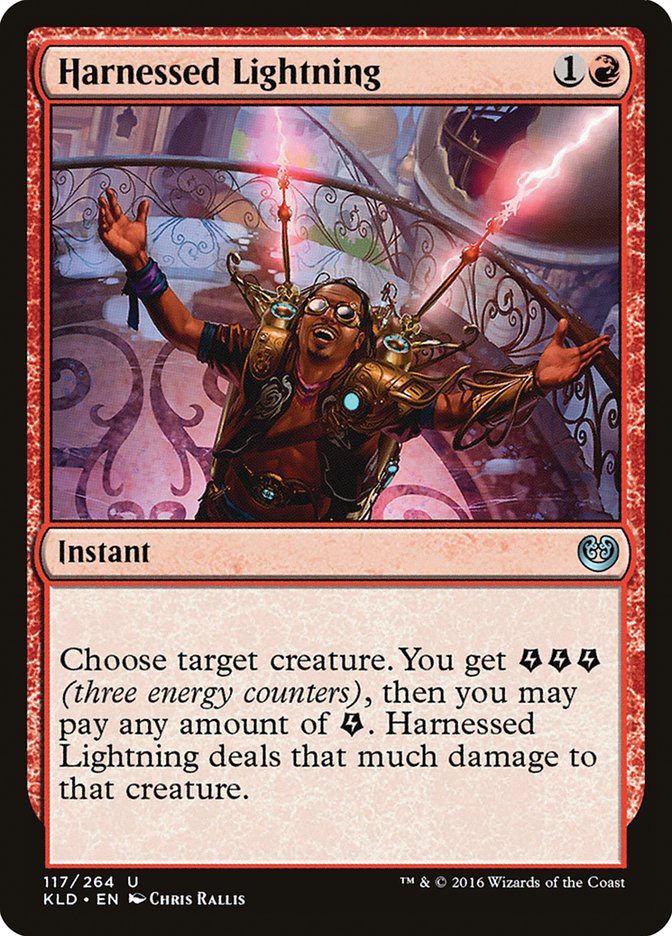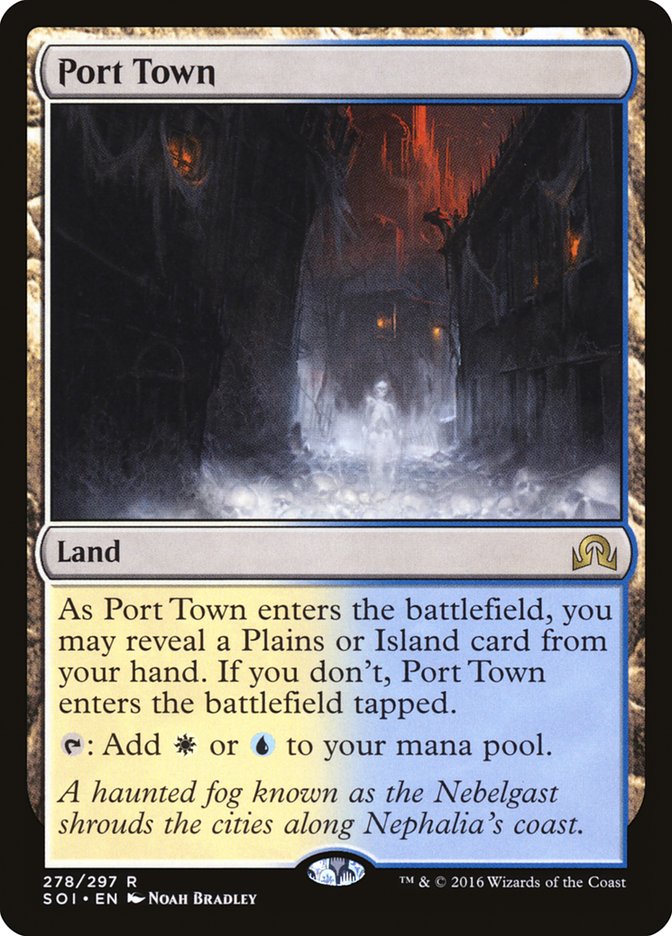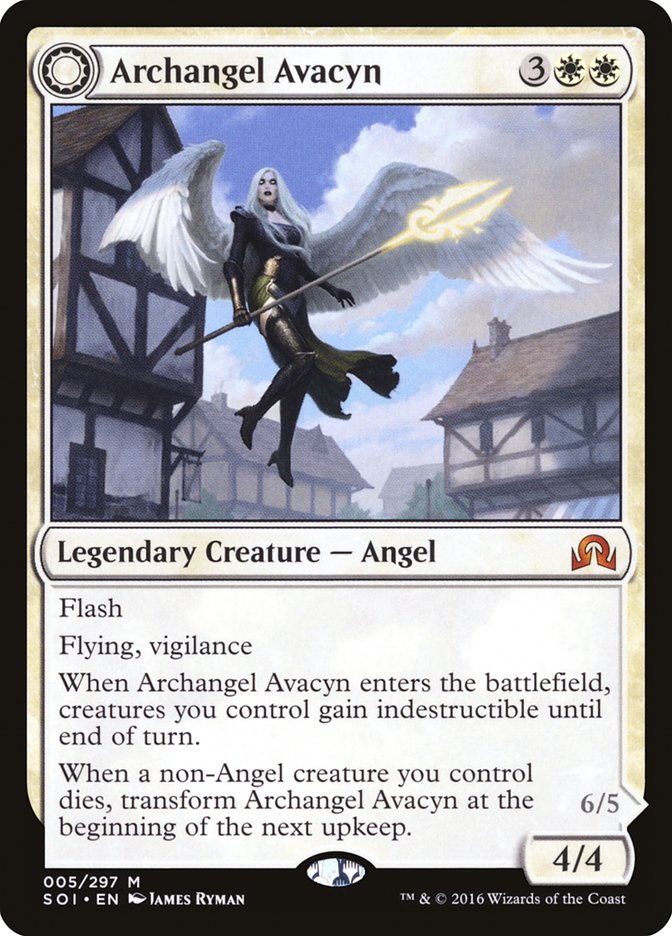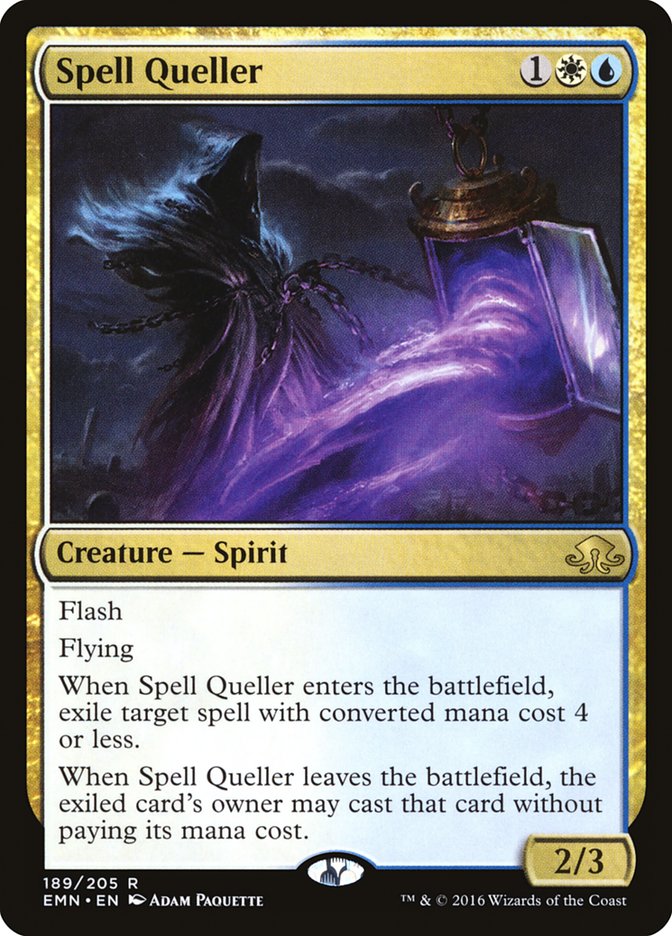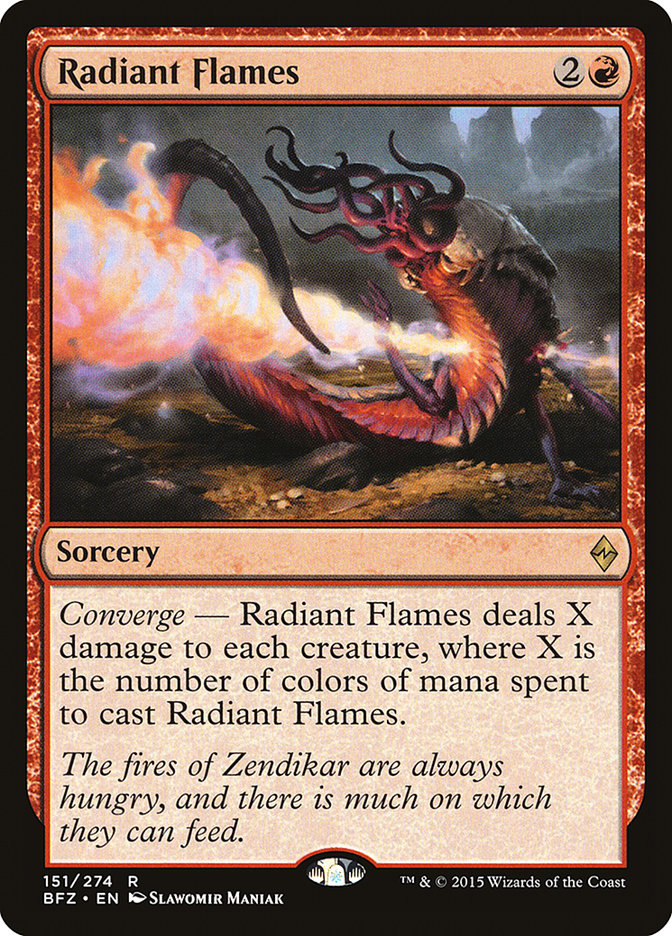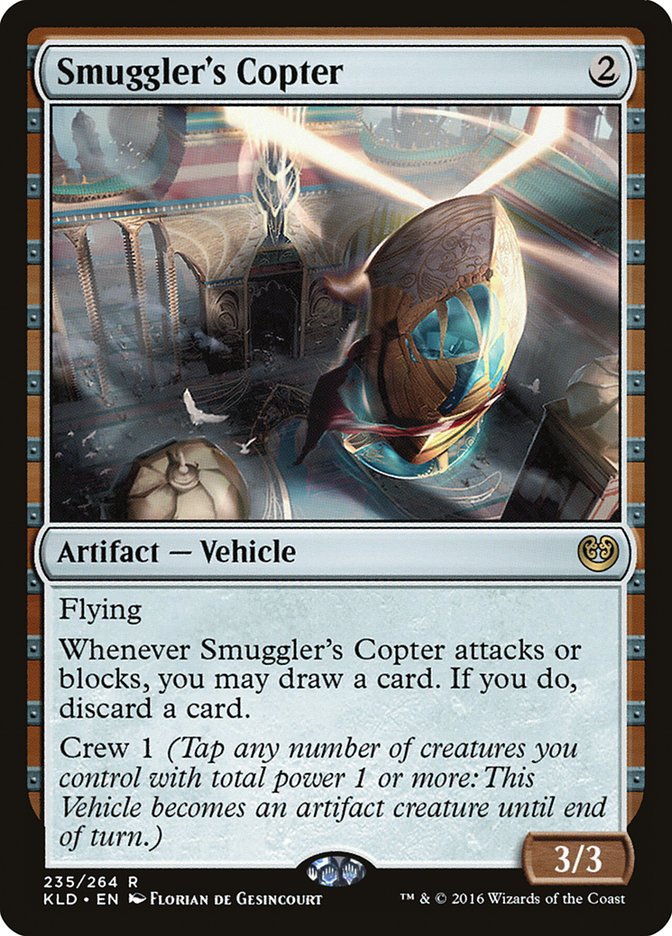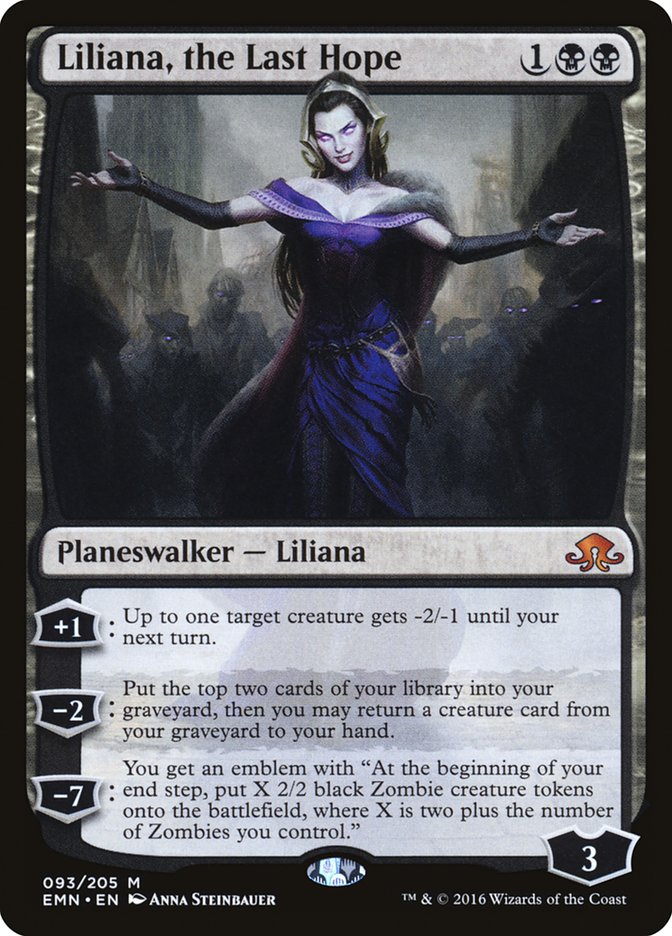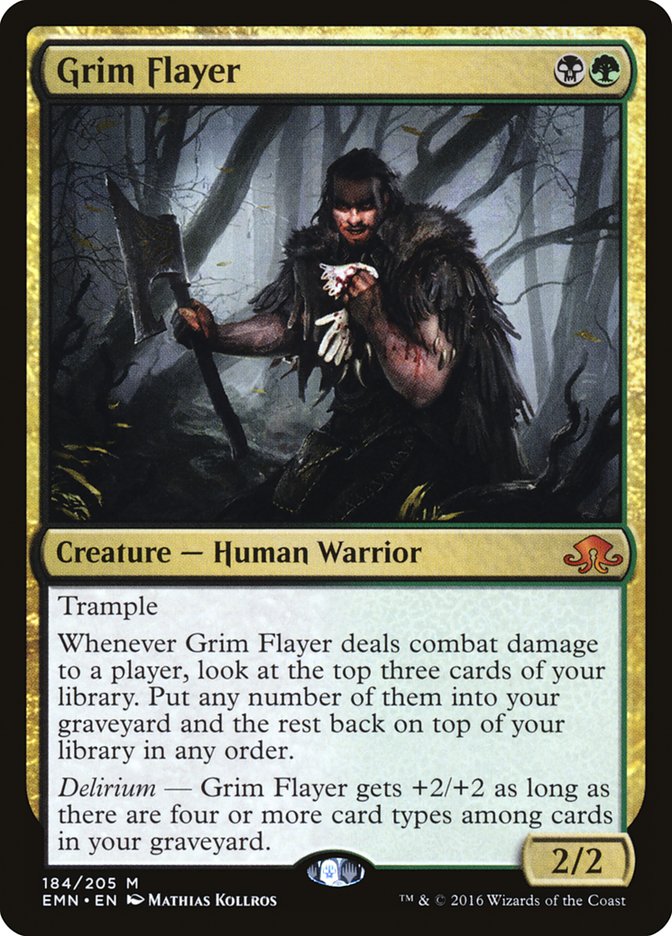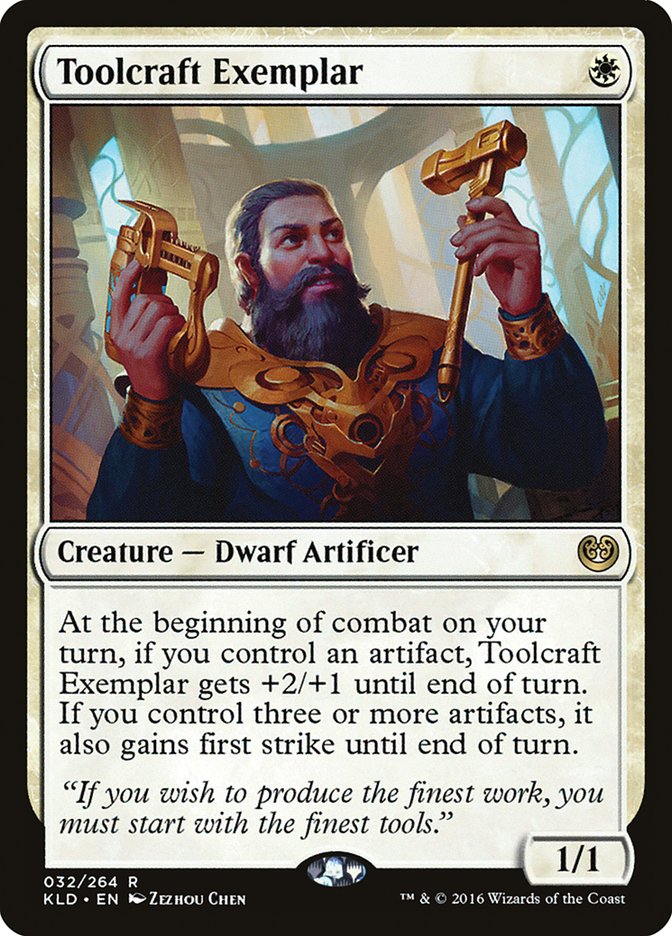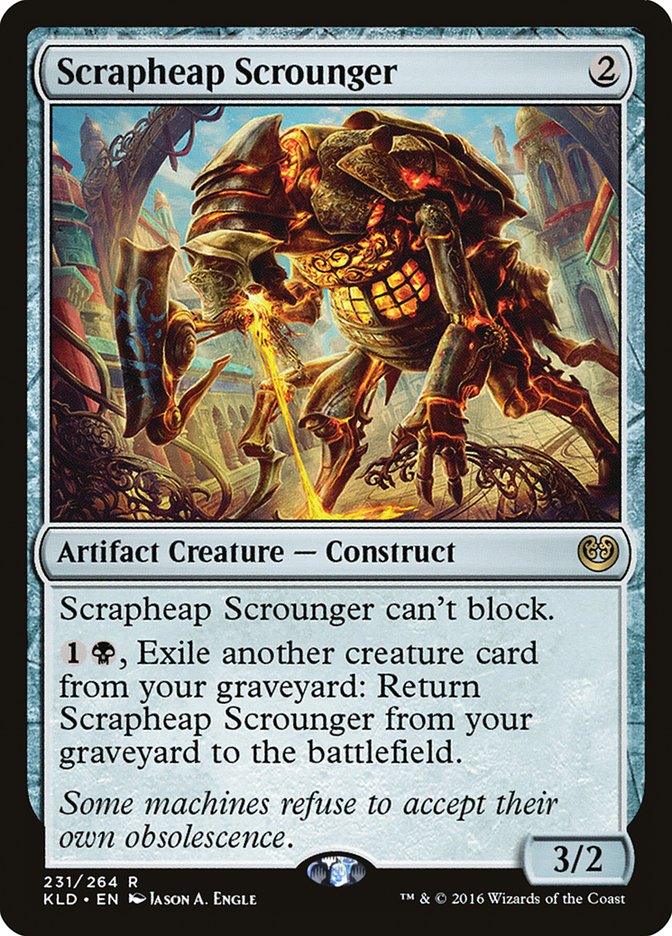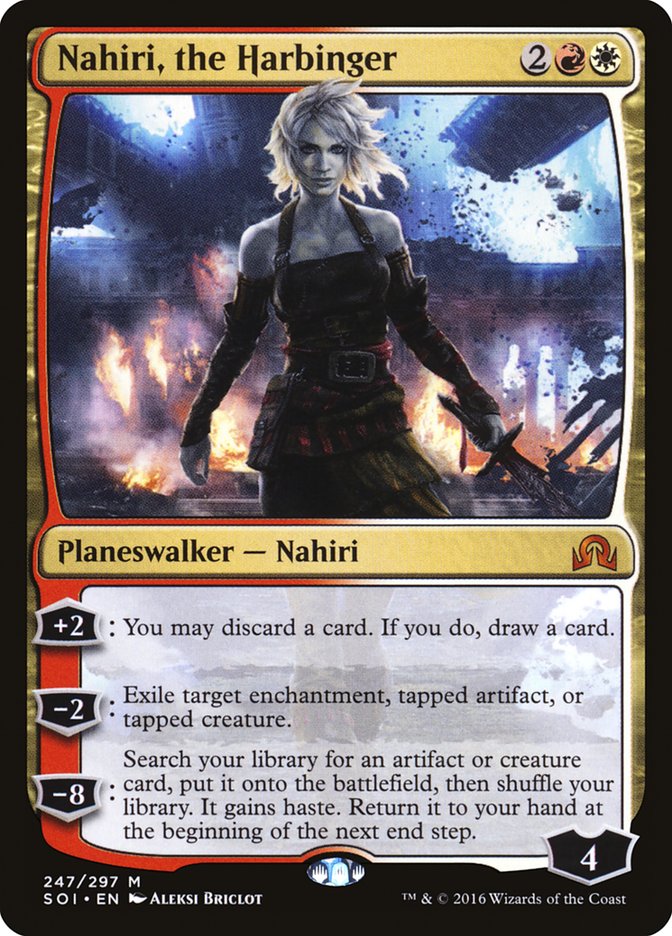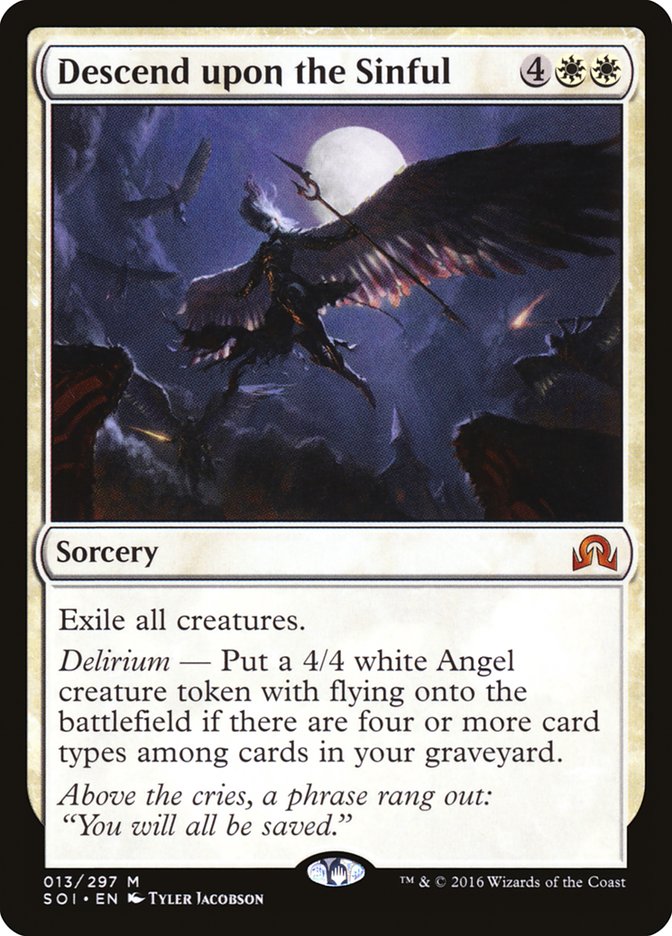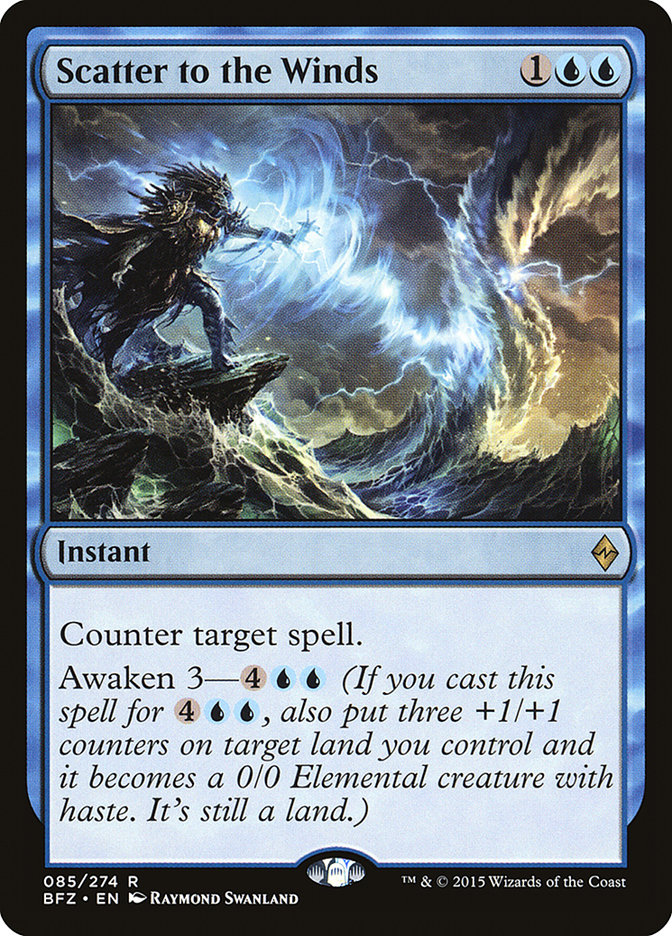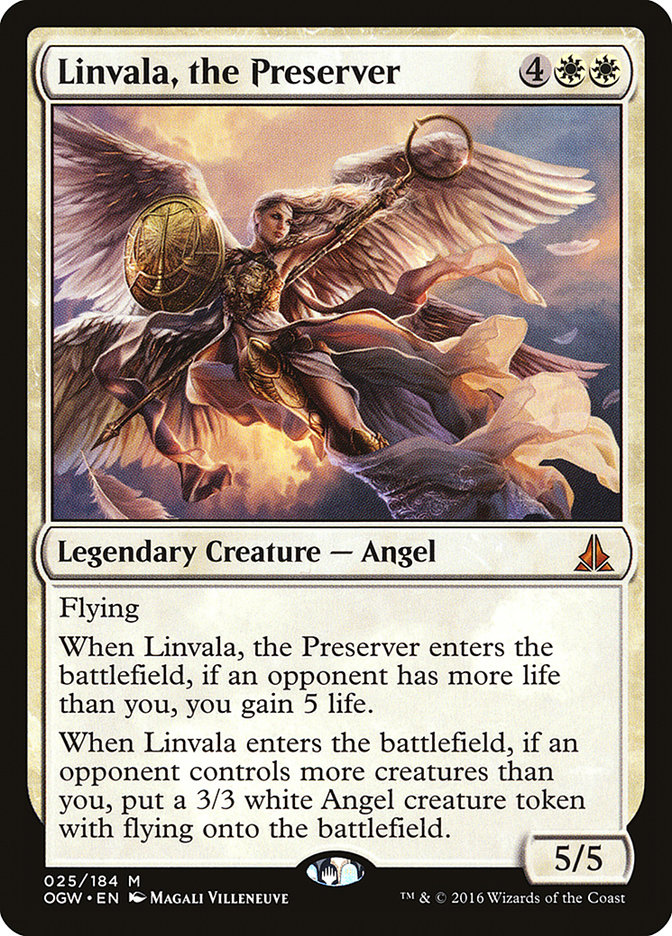12-3 with Jeskai at #GPDEN. Deck was a delight. Wins vs 4 UW, GB, UR Eldrazi, Marvel, UR Spells. Loss to Mardu, GB, Panharmonicon.
— Ari Lax (@armlx) December 4, 2016
Jeskai is great. I smashed W/U Flash a ton and did reasonably well versus everyone else. Considering control was the deck that drove back Aetherworks Marvel at Pro Tour Kaladesh, I would advocate playing this deck until Aether Revolt throws everything into flux.
Here is how.
Overarching Themes:
Creatures (4)
Planeswalkers (3)
Lands (26)
Spells (27)

Standard Jeskai is a “downhill” control deck. You are seeking some key game state where one effect generates so much advantage you just win.
That being said, it’s one of the least “downhill” control decks I would still categorize as such. Your game-breaker of Torrential Gearhulk is not as dominating as past examples of the same effect; it just has flash and gives you timing flexibility.
The opposing threats are also much better than they ever have been when I’ve played this kind of deck before. You have to be really careful in spots or you will just get stomped.
The takeaway is the game focuses on getting to one key moment without exposing yourself to one of the several things that is “unbeatable.”
Basically, be cautious, but know what the end-game looks like: a Torrential Gearhulk on the stack with you looking to untap on a stable battlefield after.
I will go on record to say that there are only eight or nine great cards in this deck: Torrential Gearhulk, Glimmer of Genius, and sometimes Jace, Unraveler of Secrets. It takes a lot of work to win without those cards. Considering I bashed W/U Flash for a similar issue last week, it’s worth discussing why this deck is different.
Your good cards are unconditionally good. Glimmer of Genius is great on turn 4 and turn 14, as is an early or late Torrential Gearhulk. This translates to a game where eventually you do your thing and it’s great, instead of one where, if you eventually do your thing, your deck is pretty outclassed.
The other difference is that your deck is full of cards that exchange well for your opponent’s good cards. In addition to filtering for your good effects, your other cards just buy enough time you eventually find what you need.
General Things
Most hands with between two and five lands are keepers. Part of this is that all your spells basically do the same thing if you can cast them and land-heavy hands are great as you have tons of payoffs, but another part is that going down a card kinda sucks in your mostly one-for-one control deck aiming to hit every land drop from one to six or seven.
Save a basic land as long as you can to enable topdecked Port Towns. If you play badly, the card is Coastal Tower; if you play well, it is close to Tundra.
You are oddly one of the fastest decks in the format in terms of round clock, as games don’t get very complicated. You take one or two optimal reactive actions, and then the “eventually they die” part sets in rather quickly with 5/6 attackers.
Bradley Hill had a good sideboard guide that I used as my basis, but he kept cutting a Torrential Gearhulk. That is your best card and I don’t care if it is “clunky.” You cast it and take over. It is never getting cut.
I do generally agree with shaving a Revolutionary Rebuff, however. Sideboarded games tend to go a bit longer and people will play around your cards a bit more. There might be more things to counter, but in a long grindy game, you don’t want to draw a blank if they have lined up answers to your two-for-ones.
W/U Flash
W/U Flash is one of the easier matchups. There are relatively few ways for you to lose, so you are playing a true control role.
The scariest single card is a resolved Gideon, Ally of Zendikar. This should not be shocking, both because Gideon is their best card and because the general scariest category of cards for Jeskai is “non-creature permanents that gain value over time.” You have a nonzero number of ways to handle this if it happens, but it takes work. The easy one is killing their blockers and then immediately attacking it with Wandering Fumarole. A similar play can be made if it attacks into Blessed Alliance alone. Generally it’s better to not let it resolve.
The most common way to lose is to get blown out by something you can’t easily recover from. Your goal is to grind a lot of good one-for-one value, and getting two-for-one’d and tempoed can be rough. Try to utilize timing to your advantage as much as possible, and try to play for backed-up lines. This sometimes means taking a hit from a Smuggler’s Copter so you can Immolating Glare it and then Harnessed Lightning a Spell Queller backing it up the next turn…or just line up Immolating Glare with Smuggler’s Copter so you can save Harnessed Lighting for a later Spell Queller. Just think, “What is my plan if they cast Archangel Avacyn or Spell Queller here?” and if the answer is “I lose badly,” consider if you can wait and make things work out better later.
The resource you often use to get to these points is your life total. This is where you exploit W/U Flash’s mediocre beats being super-mediocre. There is often a key point where you resolve a Radiant Flames with two to four mana untapped to stem the bleeding with backup. The key thing to remember here is that getting Radiant Flames exiled by Spell Queller is not something you can stop with Harnessed Lightning.
Smuggler’s Copter can be a route to victory for them, but it takes a lot for that to happen. The first attack isn’t enough, and usually the games you lose to Smuggler’s Copter involve it being able to attack unopposed for literally all of your life total. Of course there is a slight cascading factor where the loot pulls them closer to the future attacks, but all the games I have lost to Smuggler’s Copter have involved me having literally no answer for it for way too long.
Sideboarding
Out:
Shaving on tap out spells here should be obvious. You are trying to not be the one making the first move. Nahiri, the Harbinger is also a much better card Game 1, where it is more likely to exile a Stasis Snare on a Torrential Gearhulk. The one Revolutionary Rebuff coming out is a concession to games going a bit longer and targets for multiples being hard to find, while the Blessed Alliance too often eats a random creature instead of a real threat. The Gideon line is often too hard to line up and you are flush with other answers for Game 2.
In:
Spell Queller isn’t even that insane in this matchup, but it does enough. It just happens to be an answer to things that can’t be Negated and also makes their random beaters ineffective or pressures Gideon. Ideally you are using it on a semi-meaningless creature or a conditional counterspell just to trade well, but if you have to hide a Gideon with it, you can. There’s a weird subgame with them leaving in removal for Spell Queller that might pop up, but so far I’m not too concerned about it with this plan of exiling their lower-impact cards with it.
B/G Delirium
B/G Delirium has a similar profile to W/U Flash in that there are only a couple of ways they end up winning, but those routes to victory are much scarier.
The biggest one is the inevitability of Emrakul, the Promised End. You are aiming to win the game before they cast it. This can mean getting very aggressive with your countermagic. I’ve Void Shattered more than my fair share of Pilgrim’s Eyes if it looks like my hand can close quickly. Another big goal is preventing the Emrakul from entering their hand, meaning you have to aggressively target delirious Traverse the Ulvenwalds with counters.
Sometimes you can’t dodge the Emrakul trigger but can counter the Emrakul itself, at which point your goal is to make your hand as Emrakul-proof as possible. The big ones are being able to spew off Harnessed Lightnings and Immolating Glares to not kill your Torrential Gearhulks, setting up to not let them counter your own good spells, and not letting Nahiri, the Harbinger be on the battlefield. It’s not easy, but it’s doable if you plan turns ahead.
The second way to lose is to an unchecked Liliana, the Last Hope. Unlike Gideon, Ally of Zendikar, you can’t pressure it on curve with Wandering Fumarole, and on the play Liliana hits ultimate before Torrential Gearhulk can attack it. Being on the draw is doubly bad as you are down to three counterspells for it. Sometimes there just isn’t a great answer to it and you die and that’s life.
The third way to lose is getting beat down in a similar manner to Smuggler’s Copter via Grim Flayer. You need some minimum number of answers to this line, but unlike W/U Flash, those answers are pretty bad against their other cards.
Sideboarding
Out:
Immolating Glare is worse against Emrakul, the Promised End than Blessed Alliance, but against all of their other threats I would rather hit the correct Grim Flayer or Hissing Quagmire. On the draw you are obligated to leave in both Revolutionary Rebuffs and I’m unsure what the right card to cut is. I’ve been removing the Fumigate as it is conditional, but sometimes having that out is nice. There’s also a chance you want Descend upon the Sinful in the sweeper slot for the matchup, but I really value mana flexibility over exiling a couple of things when they will eventually put something in their graveyard anyway.
In:
Simple. Counter stuff and get them dead. It’s possible that three Gideon, Ally of Zendikar is a bit too many, but I love freerolling games, so I won’t change my ways. Spell Queller doesn’t make the cut as too many of their swingy cards are high-end ones and it’s hard to trap a spell under it that goes bad when all their low-end is card selection.
After looking at Bradley’s initial plans and re-evaluating, I actually think Linvala, the Preserver coming in makes some sense. It turns the tide like a sweeper but also can be proactive when you want to beat down. I would consider switching things up a bit to fit it in.
Aetherworks Marvel
The Aetherworks Marvel matchup is very similar to the B/G Delirium matchup in the Emrakul, the Promised End aspects, only they almost always “have it.” Aetherworks Marvel is a bit easier to handle than Liliana, the Last Hope, as having a turn to set up a counter helps a ton. Always be counting and know what your timeframe is to set up a hand to survive a Mindslaver trigger, and always be looking to turn the corner and close out a game.
Sideboarding
Out:
Tons of spot removal coming out is pretty obvious, but it’s worth talking about why Harnessed Lighting stays in. You aren’t trying to line up a kill spell with Emrakul, the Promised End; you are worried about Tireless Tracker and killing Servant of the Conduit on the draw so they can’t turn 3 Aetherworks Marvel you.
The Jace, Unraveler of Secrets cut is because it’s hard to safely play a tap-out threat. Nahiri, the Harbinger is a slightly worse card, but I like the flexibility to kill a creature with it and the fact that it just costs less mana.
In:
Counters and kill-’ems. Easy.
Vehicles
Of all the common decks in the format, Mardu Vehicles is probably your worst matchup. I don’t know how bad it actually is, but on a fundamental level you don’t have the same advantages as you do elsewhere.
Jeskai is a deck of leveraging time to ensure victory. Due to their large creature sizing, Mardu Vehicles simply doesn’t give you that resource. They also have many threats that your removal doesn’t quite handle.
The biggest issue is Gideon, Ally of Zendikar. Unlike against W/U Flash, they can easily force your hand and create an opening to resolve Gideon, and unlike against W/U Flash, you can’t afford to attack it as easily.
As a result, your gameplan becomes to resolve a Torrential Gearhulk as quickly as possible and use the battlefield presence it creates to turn a game around. Your hand selection isn’t much different, but you have to get to a Gearhulk quickly and can’t afford to wait for a better setup as often as you can elsewhere.
Sideboarding
Out:
Most of this should be straightforward. Bad countermagic out, clunky spells out. Void Shatter remains as it handles Scrapheap Scrounger. Anticipate being shaved is a concession to needing your mana every turn and Torrential Gearhulk usually targeting removal.
In:
Brutal Expulsion is a highly targeted card aiming to handle Scrapheap Scrounger while regaining tempo by bouncing a Vehicle or even an animated Gideon, Ally of Zendikar. Negate handles the most troubling cards, and Spell Queller somewhat does that as well.
Control Mirrors
In my admittedly limited experience, these are not decking battles.
Specifically because of your planeswalker threats, you can often pull significantly ahead on cards to the point that someone just doesn’t have enough removal to handle all the threats and counters the other person has drawn, particularly Jace, Unraveler of Secrets threatening an ultimate.
The general goal is to not let your opponent get into a position where they can safely and profitably resolve a Torrential Gearhulk. Trading a Gearhulk for a Void Shatter is fine; trading it for a flashbacked Void Shatter with no good followup is not.
I will say to take this all with a grain of salt. I like to play control mirrors in aggressive ways. If you want to try for a different plan, dream your dream.
Sideboarding
Out:
In:
Typical “removal out, relevant cards in,” except I truly hate Summary Dismissal. It’s an expensive reactive-only counterspell. It’s very possible Brutal Expulsion targeting your own spell or Torrential Gearhulk is a better card.
The Rest
Despite coming in for zero of the major matchups, Descend upon the Sinful covers a lot of the nonsense sector of the format. You have to beat Zombies and Bristling Hydra somehow. Given the narrow power of the card and how poorly Fumigate lines up against Archangel Avacyn, I wouldn’t be surprised if changing the maindeck sweeper to Descend upon the Sinful is a pure upgrade. In general the traditional sweeper is an emergency button against stuff you don’t expect, and Descend upon the Sinful just hits more of those things.
Changes
Scatter to the Winds doesn’t actually have relevant game text beyond “counter target spell.” It has a lack of relevant game text of “devoid” against Ceremonious Rejection, but the exile clause on Void Shatter is significantly more relevant than a one-in-a-hundred shot at a 3/3. Make the swap over to a full set.
Spell Queller is a fine flexible card to sideboard, but the full four isn’t necessarily correct. Having an additional Negate or similar card might be better to minimize the impact of people leaving in removal against you.
I would not mind a second copy of Linvala, the Preserver because it is just that good. I don’t know where it fits, but it deserves another look.
Overall this Jeskai list is close to perfect. The mana is great despite the crazy requirements all your lands put on you, the spells are great, and your gameplan is generally strong and flexible enough to beat whatever is thrown against you.
Traditional control may have had a rough couple of months after Dig Through Time left, but trust me, it’s definitely alive and well.


